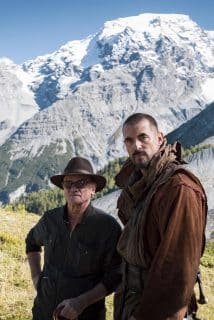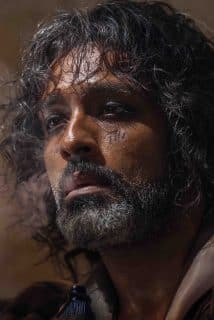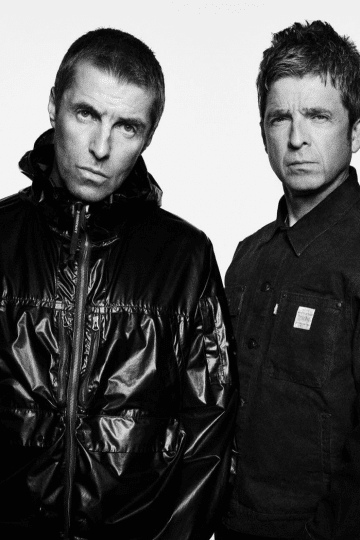Hazel Doupe on looking into the soul of viewers
Culture
Hazel Doupe on acting in Say Nothing and Kathleen is Here, two social issue stories that demand to be seen and call for change
As we look down the empty landscape of 2025, one person at least can be satisfied with the lofty peak they ascended to last year.
That person is Dublin-born Hazel Doupe who pretty much wrung out The Book of Man with two devastating performances, firstly in the remarkable film Kathleen is Here, and then in Disney+’s series about The Troubles, Say Nothing in which she plays Marian Price.
Kathleen is Here is something quite extraordinary.
The debut film by Irish screenwriter and director Eva Birthistle (also who you’ll know as Ursula in Bad Sisters), it is a fictional story about an 18 year old girl played by Hazel, who has aged out of care and has to go back to the house she grew up in to find a life for herself. But with her mum passed away, she’s alone there and forms an unhealthy relationships with a mum-substitute neighbour and her family.
It is Mike Leigh with a dash of Lars con Trier and a certain touching quality all of its own. Hazel is in almost every shot, from the stark beginning to the strikingly devasting final shot which we won’t spoil here.
“It was a very quick shoot, about twenty days,” says Hazel, although the film was long in the making, beginning as a short, which Hazel also starred in: “I think it was 9 years for Eva, and it was 4 years for me, from when I first read the script to when we did the feature film.
So Kathleen had been imbuing her chaos and her very electric quality into me as I’d been living my life after reading the first script. Her spirit had been permeating through me in a healthy way.
And so when I got to play her, it was a quick burst, a very rare and rich burst of this explosive, electric character that I got to do in a few weeks and then move on.”
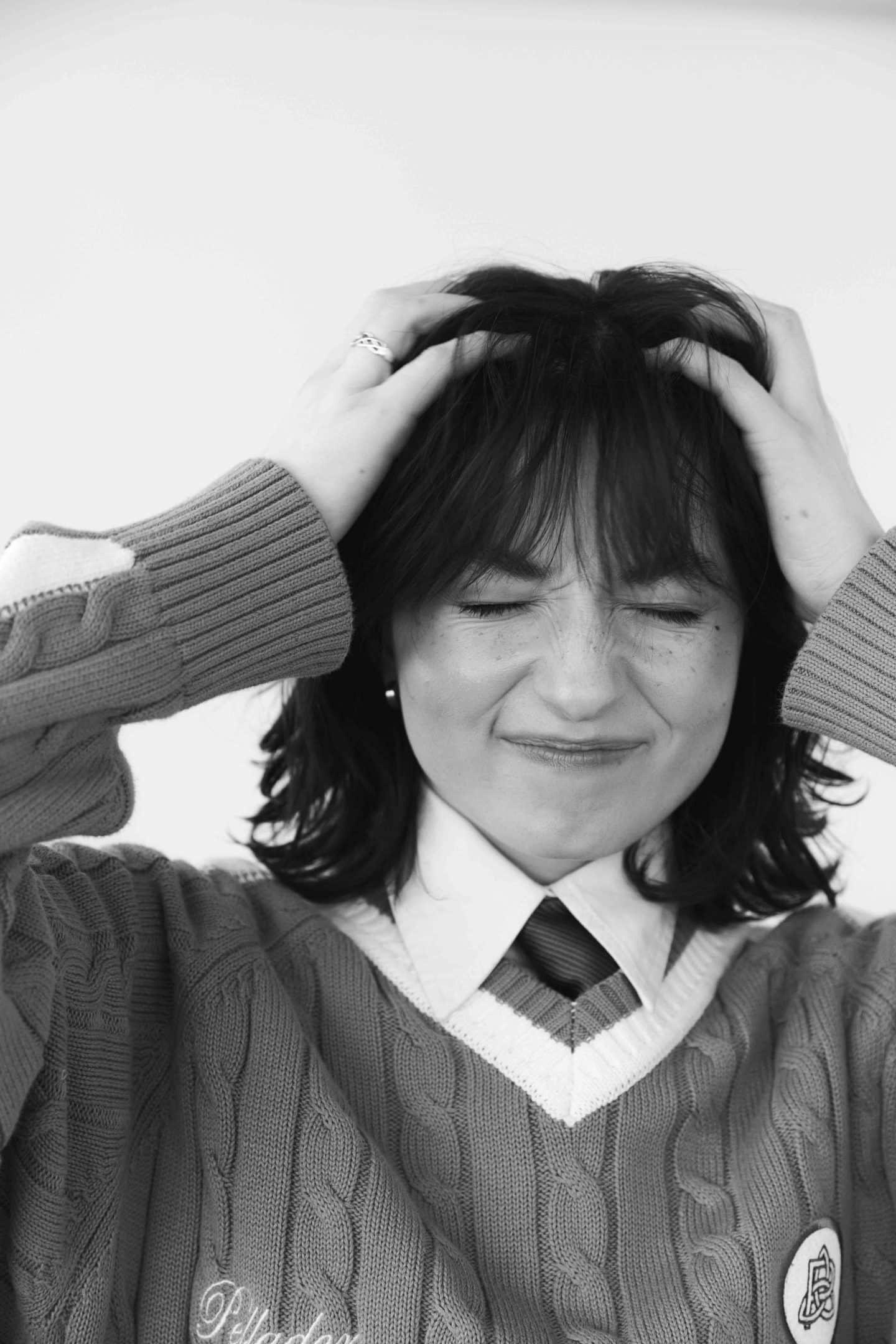
The time aspect of the production also allowed Hazel to research into young people who find themselves in such circumstances.
“I think with any character that is on the margins of society, or any character whose experience is very sensitive and that you haven’t lived yourself, you have to be extremely respectful and extremely careful and do absolutely everything within your power to do justice to the character.
That was the case with both Kathleen and Say Nothing.
The idea for the Kathleen script first came about was this online documentary of this girl who was aging out of care, who was sort of doing vlogs and documenting in a really vulnerable, raw way, her experience of moving out of care.
There’s so much of that type of thing online that I was able to trawl through and really just gain an insight into how these people were coping with that situation and what they had been through before and what had left an impact.
And what we were seeing on screen versus maybe some of the horrible things that you could tell they were dealing with silently, off screen.
That definitely fed into my performance. I really wanted to touch on the putting up a front for people that you want to impress or be seen as a certain person.
Contrasted with then being at home and grappling with horrible comments in a YouTube video and just how primal the reaction is to that rejection.”
She also heard stories from young people who had made use of a holistic educational program in Derry called Heal. “They work with people who are on the margins of society,” says Hazel, “In particular, young adults who are either in care or have aged out of care.
They were very lovely to us and very generous with some people’s stories. They were all anonymous, but it was a really brilliant insight into what the reality of those struggles are, and how hopeful people in care and coming out of care are. And in the context of Kathleen, how that hope was going to manifest.”
You can certainly tell that level of sensitivity went on behind-the-scenes in a film that feels very raw in a way that stays with you. Hazel’s vulnerable depiction is deeply empathetic and even as Kathleen descends into dark behaviour, you remain on her side.
After Kathleen is Here, Hazel immediately went off to film Say Nothing, which she says was a big contrast, being a high-profile prestige TV shoot a world away from the fast low budget film.
It made the process of leaving Kathleen behind easier, particularly since she was immediately plunged into an ensemble cast, and indeed was living in Camden with Lola Petticrew who plays her sister, Dolours Price.
“We hadn’t done a chemistry read, so we were we were both kind of like, what’s going to happen here? We have so many things together. But it was just very easy to form that sibling bond with Lola.
And with Anthony Boyle [who plays Brendan Hughes] and Josh Finan [who plays Gerry Adams], the four of us kind of became this archetypal quartet of like stupid idiot actors on set.
It was so funny. I was the sleepy one and Anthony was the cheeky one. Josh was the clown, and Lola was just the fucking, I don’t know, powerhouse of us all. It was magic to work with them.”
Say Nothing is a series which delves into the Troubles in Northern Island via the true story of two girls who joined the IRA and rose through the ranks.
Hazel’s Marian is the quieter sister who becomes ever more involved in the organisation, in a show that is both revelatory and devastating, bringing new perspective and humanity to this controversial part of history.
“There was there was a lot of gaps in my knowledge when it came to the war in the north,” she says of her prep, “I got my hands on any kind of documentary footage or interviews that I could leading up to shooting. But when it came to research of my own character, there wasn’t that much of the real Marian Price online.
I basically just went with what was in the script and studied every single photo that I could. It might seem like a weird thing to do, but I feel like in the classic phrase, a picture paints a thousand words.
I really felt like if I tried to connect with the photographs, I’d have a greater chance than trying to connect with any kind of out-of-context, arbitrary detail that was in an interview.”
The show certainly does approach Northern Ireland and the IRA in a fresh way, one allowed through the distance of time and in the wider scrutiny over British history. More than anything though, the show is a gripping story of two young girls caught up in politics and violence.
Hazel says, “I like the scene in episode 5 as they’re preparing to go on their mission to the Old Bailey. And they sit in the reeds in some field and it’s like a calm before the storm.
And we hear Marion says something about having kissed Frances a few times and that she’s worried about going all the way with him. And you suddenly remember that they are girls. They’re so young and in their spare time, when they’re not directing missions of warfare, they are just being girls. It’s a great juxtaposition.”
Although they were shooting in London, a lot of Belfast actors were cast in the series and Hazel – as with Kathleen is Here – felt a fierce responsibility to do justice to the real story.
“It just made everything feel so alive, to have people driving the story that had lived that experience and had been alive during the peace process. It was very humbling and very enriching to what we were trying to make.
They were telling us what it was like, and as well as just being their pal and listening to it, I definitely felt the responsibility to actually take that information and do something with it for the character, and for the many Belfast people that were going to watch the show.
Hopefully they’re going to see an accurate representation from a young Dublin girl.”
That kind of commitment has already led to the kind of real-life interactions that happen when art takes great care in telling true stories.
“I’ve had some really heartfelt responses to Say Nothing,” she says, “I’ve gotten a lot of DMs on Instagram of people being vulnerable and opening up and just saying how much it resonated with them.
We did a screening in Belfast, hosted by Lola and Anthony, and they invited me to come up. It was the first two episodes and they invited a lot of people who were distant friends or close friends of a lot of the Belfast cast.
Coming out of the theatre and even in the middle of the screening, you could feel that people really seemed to love it, and that was the biggest weight off of my shoulders.”
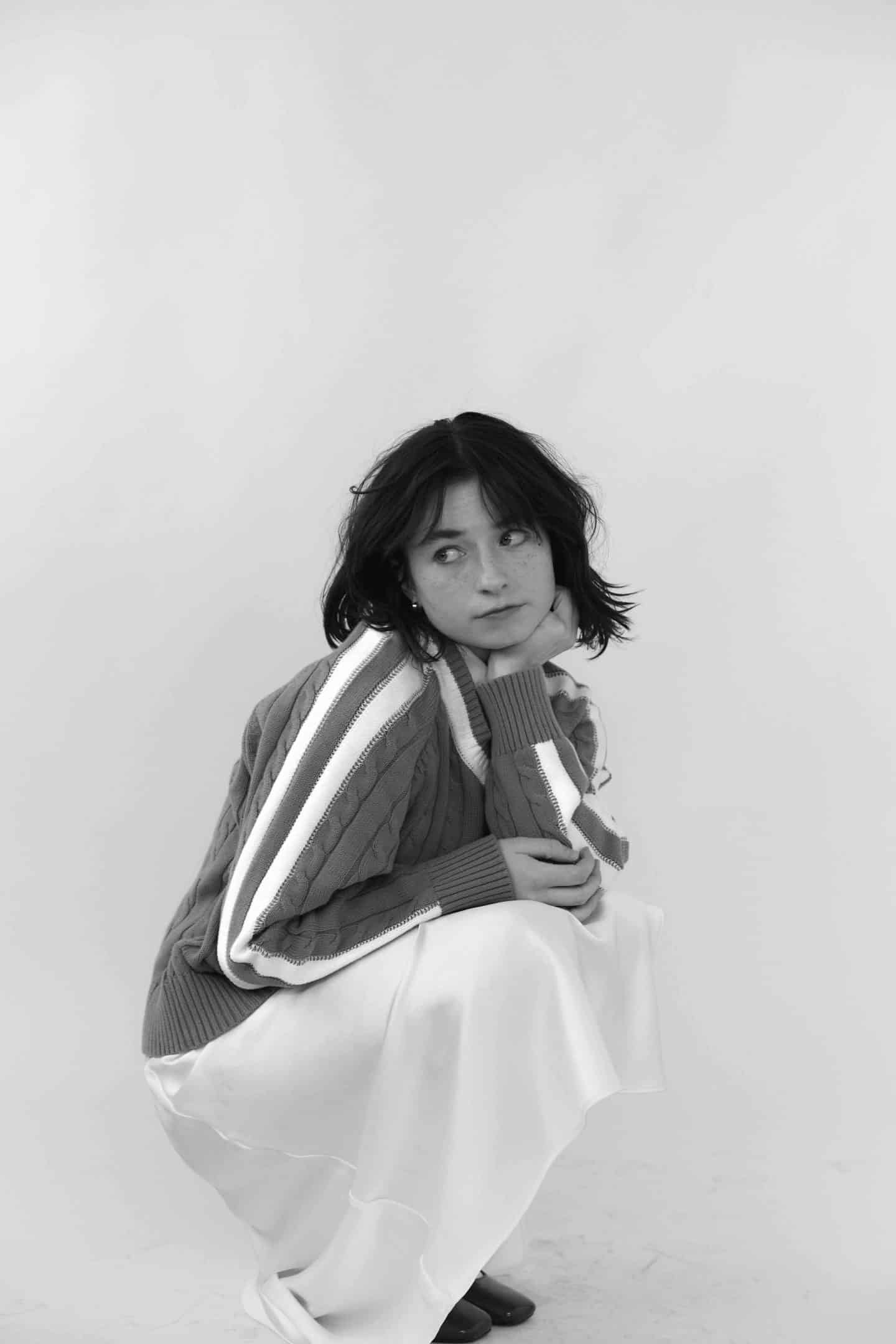
A similar thing happened with Kathleen is Here.
“We had a screening at the Lighthouse Cinema in Dublin, and a lady came up to me at the end. She’s a comedian and she just started letting it all out, almost in an adrenaline-fuelled way. She was so bowled over by the realness of it all that she was experiencing on screen because she had also been through it as a kid, and had to do that whole process of ageing out of care.
She said, ‘oh, I actually had to go out for a smoke in the middle of it because it was hitting that hard.
I met her again then subsequently. It’s really beautiful, the bond that that happens after someone watches you on screen and they think they know you. I’m such a lover of people that I immediately go into that very comfortable way of talking to somebody, and I feel like I know them too!
Because they’re being so vulnerable and they’re treating you like a friend and talking to you like a friend, and you’re like, oh, this is just what friendship is. It’s just when you’re talking to each other with no inhibition.”
That ability to really connect is what the TV show and the film share, and I ask whether the reason for that is that they are stories that haven’t been told and needed to be?
“Absolutely. I think it’s a bit self-indulgent to hope that your art changes the world, but it definitely is an act of hope to produce something like that in just the general abyss of the world and hope that somebody resonates with it or that that something good comes from it.
I know that was definitely the forefront of everybody’s mind in both of those shoots.”
Pretty much what we’re looking at here are issue-based creations that, alongside hit series like Mr Bates and the Post Office, are making nonsense of the idea that it’s all superhero films and spy thrillers these days.
There are good, meaningful political and social films and shows out there, they just need extra effort to find; but they demand to be seen.
“There’s been a code of silence in the north for a very, very long time,” says Hazel of Say Nothing, “There was a lot promised to the ceasefire babies that was never followed through on, and I hope that it can make people feel like it’s OK to talk about it because there’s no healing without first talking about it.
And I also hope that people who either weren’t alive when it was happening, or who lived very far away, or even people who didn’t live very far away, like us in the South, but who kind of distanced ourselves from that struggle and that thirty-year war… I hope interest can be sparked and an incentive to learn more about it.”
As for Kathleen is Here, she hopes that people who have been through such experiences feel “seen by it,” but also that it makes demands of its audience. That incredible final shot…well it’s what that is all about:
“That final scene was a genius move by Eva because it does what the whole film was setting out to do, which is to stare into the soul of the person watching and doing nothing. In the real world, what can they do with that new information?”
Follow Hazel on Instagram.
Say Nothing is on Disney+ now.
Photo credits:
Photographer: Klara Waldberg
Styling: Maria Patriarca
Hair and Make-Up: Terri Capon
Trending

Join The Book of Man
Sign up to our daily newsletters to join the frontline of the revolution in masculinity.






